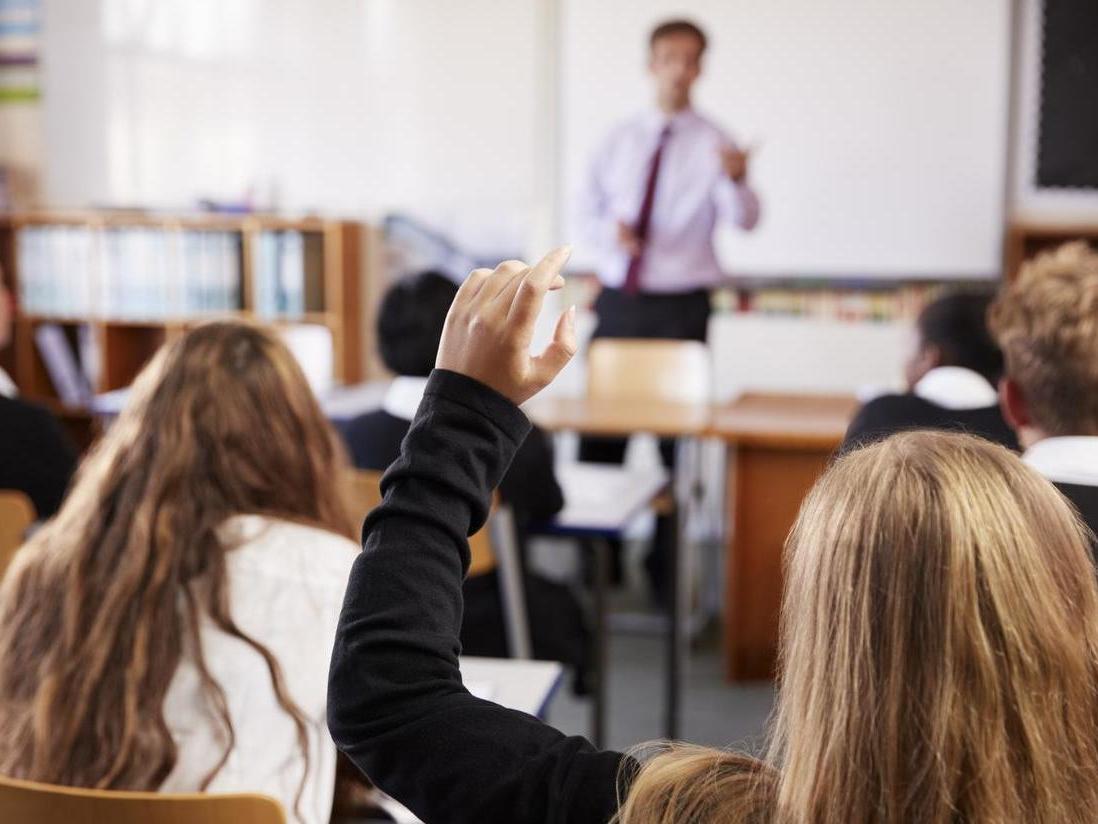The Independent's journalism is supported by our readers. When you purchase through links on our site, we may earn commission.
Instead of judging parents who home school, the government should recognise that it's failing our kids
Rather than create a moral panic around the motives of home schoolers, it’s time we acknowledge the failings in the education system and put effort – and funding – into rectifying them

The start of September is that time when social media is flooded with photos of uniformed children smiling, getting ready to receive an education provided by the state.
Except that, for a growing number of children in the UK, school is not only unable to cater for their needs and learning style, but is set up in a way that is actively sabotaging their ability to engage, leaving them anxious, isolated and with low self-esteem.
The number of children in the UK who are home schooled has more than doubled in the last four years, and the reason is not because of an increase in covert child abuse or radicalisation – the apparent fears of those pushing for registration – but largely because so many kids are being failed by the current state-schooling model. Rather than create a moral panic around the motives of home schoolers, it’s time the government acknowledges its failings in the education system and puts effort – and funding – into rectifying them.
Many home-schooled children out there are “neurodivergent”, disabled, gender diverse or have strong cultural or religious convictions that stand them apart from their peers. Not only do many of these children find they are unable to engage in meaningful education in mainstream school because their needs aren’t being met, but they become a magnet for bullies. From the child with Down’s syndrome who can’t attend a school trip for “health and safety reasons” to the transgender children bunking off because of physical and verbal abuse the school can’t control, many children end up in a home-school environment not because of a philosophical choice, but because their desperate parents simply want what’s best for them, and this one-size-fits-all education system cannot provide it.
My own child is on the autism spectrum has been periodically home-schooled over the last six years, as well as in the mainstream school system in both the UK and in New Zealand, where we have also spent some time.
He’s a bright child, keen to learn, but in an open plan classroom with dozens of other children, he’s easily distracted. His fixation on specific, specialist topics means he struggles to engage in activities that don’t spike his interest, and his anxiety and difficulty reading social cues can often land him in hot water with his peers. We’ve withdrawn him periodically to help him re-set mentally, catch up academically and to work on the social and emotional skills often neglected in a busy, mainstream school environment.
When your child is struggling at school your own emotional wellbeing takes a hit. In the UK, where parents have legal responsibility to provide an education, it has been possible to simply withdraw your child from school without having to justify your reasons, giving you the space mentally and physically to focus on their needs.
But in New Zealand – and Australia – where the state has legal responsibility for schooling, you need to apply for an exemption to home school, a lengthy and time-consuming process. Even when you have an exemption you are never completely free from the box-ticking activities of the state, with Ministry of Education representatives able to visit your home to see if they’re happy with the education being provided.
Home-schooling parents live in the shadow of the knowledge that educators can force them to return their child to an unsuitable institution at any time without providing additional support. Registering home-schooled children in the UK is the first step down a similar path of control. The updated guidance around home schooling, released this week includes a flow chart to show a local authority’s options if they’re unhappy about the education a child is receiving at home – all routes end in obtaining a care order.
If you parent an average, neurotypical and physically-abled child, alternative schooling probably sounds like “woo”. I know phrases like “school refusal” and “high anxiety” smack of “helicopter parenting”, but until you’ve seen your child self-harm to get out of going to school then you’ve got no idea.
With that in mind, you’ve got to ask yourself, why would you be happy about changes that could force you to place your kids into an unsafe environment, under the guise of government concern over their wellbeing?

If this government were genuinely concerned about our children, they wouldn’t be asking what home schoolers are up to, they would be asking why there are so many.
They would be talking to the stressed-out teachers about their underfunded schools. They would be ploughing more money into the education, health and care plan process, and making sure resources are in place to enact the care plans once they’ve been agreed upon.
If the major cause for concern is ensuring all children receive a good education that prepares them for life, it’s essential the lens of enquiry is turned in upon the system itself.
Join our commenting forum
Join thought-provoking conversations, follow other Independent readers and see their replies
Comments
Bookmark popover
Removed from bookmarks